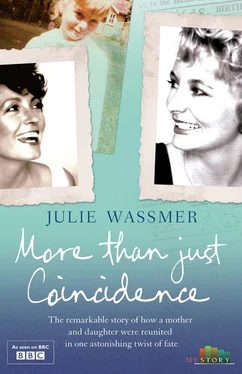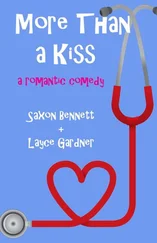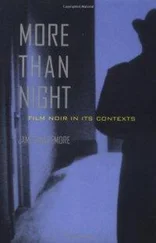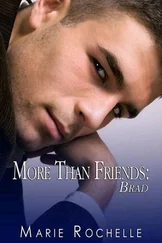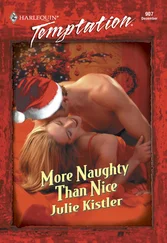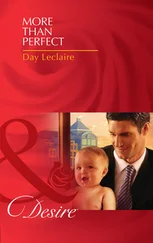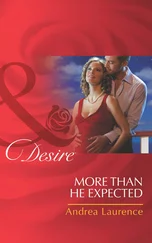Chapter Three By Hope, By Work, By Faith
I am nine years old and my teacher at George Lansbury primary school is a woman called Joyce LeWars. She is from Jamaica and walks with her head held high, proud, strutting—her body so curvy it seems to have been drawn from a series of circles. I creep up behind her when she’s climbing stairs and hear her humming a strange but cheerful tune. I wish I could join in. She’s the happiest person I know.
Before Mrs LeWars, primary school had been a strict and forbidding place revolving around the three Rs and the slipper. Our teachers had all been middle-aged men in tweed jackets, and women who wore milk-bottlebottom glasses. And before Mrs LeWars, I had only seen one other black person in my life: a tall stranger wearing a Homburg hat and white suit, baggy trousers flapping wide in the breeze as he strode through Roman Road market. No one knew where he had come from or where he was going, but all heads had turned—adults fearful, children fascinated.
Mrs LeWars inspired the same fascination. She managed her class with just the right mixture of authority and praise and was everyone’s mum, encouraging us all in equal measure. We spent long, hot summer afternoons writing essays and stories which she would take home for her own five children to read. They joined us one summer at a school camp in the countryside—two dozen East End kids suddenly transplanted to rural Surrey to tramp around potteries and old churches. More accustomed to playing in the wartime bombsites that still existed in London in the early 1960s, we now found ourselves let loose on a more natural landscape. We screamed as we galloped like runaway horses down the Devil’s Punchbowl—an impressively deep, dry valley sculpted by water long ago, we were told. The next day someone complained of a sore throat, brought on not by screaming, it was discovered, but by a raging virus. Those who didn’t end up in sick bay took it home with them and suffered there.
Still, we also took home memories of a new experience. It was 1963 and our lives seemed to be changing as though the planet itself was turning in a different way. From the dodgem cars and waltzers in the fairground at Victoria Park a new music was sounding. It, too, had a different beat—created not by lush orchestral strings but picked out on guitars and rough harmonicas —a Mersey beat. In the wider world that year was notable for a series of salacious scandals, including the sensational divorce of the Duke and Duchess of Argyll. Every evening during the television news I would hear my parents complaining in hushed tones about upperclass depravity or ministerial falls from grace. Something called ‘the Profumo affair’ was on everyone’s lips. John Profumo, a respected Tory cabinet minister with a film-star wife, had been forced to resign after being caught in a web of intrigue involving call-girls and a Russian spy. The details went over my head but there seemed to be a general feeling in the air that the establishment was rocking on its heels and an old, hidebound way of life was being overturned.
At school a new wave of forward-thinking and politically motivated teachers had been spearheaded by the arrival of a young, innovative headmaster, Mr Kent, who, at the end of that year, led a special assembly to mourn the death of American President Kennedy, giving a memorable speech celebrating democracy and equality.
Soon another member of staff appeared, wearing long hair and a black PVC raincoat. Mr Rogers had been trained at the Central School of Speech and Drama and had come to teach us ‘acting’. With him came a lot of big wooden boxes, open on one side, which could be fitted together in various combinations of shape and size to form a stage. Instead of whacking us with a slipper, he prompted us to explore it. We leaped on to it, pretending to be all manner of things—trees, birds, angry, sorry, sad.
One afternoon Mr Rogers took four of us to one side and introduced us to Shakespeare. Christine Bolton, Pat Pask, Sharon Warren and I were then ten years old, but after a few weeks’ coaching we were also word-perfect for the Witches’ scenes in Macbeth. A month later we were confidently applying panstick make-up, cloaks, wigs and talons and stepping out on to the stage at Aldgate’s Toynbee Theatre, waiting for the curtains to open and the lights to go up.
John Profumo, the disgraced government minister, was atoning for his sins by cleaning toilets in the same building. Perhaps he even watched the Shakespeare Festival in which we played our parts.
Double, double toil and trouble; fire burn, and cauldron bubble…
As Hecate I had a thirty-five line speech but after Mr Rogers’s expert coaching, I didn’t forget a word. The rest of our class, together with proud teachers and parents, boomed applause from the stalls.
On the Central Line train home to Mile End, my father looked on as my classmates carried my broomstick for me. He smiled across at me, full of pride, having had no idea we had even been rehearsing, let alone would be performing in a proper theatre. A few weeks later, coming home with my dad from the Bridge House one evening, my mother flung her patent leather handbag on the sofa.
‘Do you have to keep going on?’ she snapped. ‘People go out for a quiet drink—they don’t want to keep hearing about “my kid this and my kid that”.’
My father had been bragging again, boring pub regulars not just with his account of the theatre production but with news that I had now passed the Eleven-Plus, one of only two girls in my class to do so.
This was the exam that would separate me from the friends I had grown up with, scattering us in different directions. After the summer holidays I would be moving on to the Central Foundation School for Girls in Spital Square, on the edge of the City. My friends would be attending secondary moderns where, in 1964, academic subjects were superseded by lessons designed to prepare them for the kind of life it was assumed working-class girls would go on to lead. If they showed the aptitude for it, they learned shorthand and typing. If not, they had classes in something called ‘layette’. I hadn’t the faintest idea what this was—it sounded to me like the name of some French perfume—until it was explained to me that it was guidance for what to buy and make for your baby. Girls as young as fifteen years old filled exercise books with notes on essential babycare items and were instructed how to knit and sew everything from baby blankets to burp cloths.
The boys, too, were set on diverging paths. Those who passed the Eleven-Plus would go on to a new local grammar school while those who failed might learn woodwork at a secondary modern or technical college.
After term ended, my friends and I took a trip on the number 8 bus to the West End. With pocket money given to me by my dad, I paid for us to see Zulu, with Michael Caine, on a huge cinema screen in Piccadilly. Afterwards, we headed to Trafalgar Square where we fed the pigeons, took farewell photos of one other and tried to make sense of the message Mr Rogers had written in each of our autograph books: ‘Keep to the Coven’.
Although we promised to stay in touch, deep down we all knew, even then, that it wasn’t going to happen. We went home on the bus together and after we’d said our goodbyes I lingered a moment at the bus stop, knowing I’d be returning to it soon. I would be taking the number 8 out of the East End every day to my new school, while my friends remained behind. But riding with me would be my father’s expectations. Could I possibly ever live up to them?
On the heels of my Eleven-Plus result had come news of another exam I’d sat. I had passed that one, too, and if my father was pleased as Punch that I had gained a place at a grammar school, this was the icing on the cake. I had been awarded a bursary that would fund my school uniform until the day I left. The Alleyn Award hadn’t been won for years, but I’d done it.
Читать дальше
